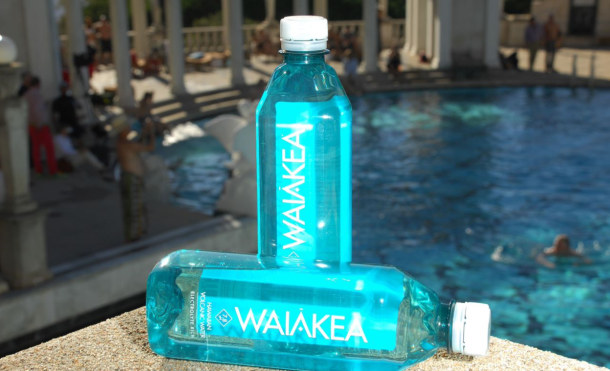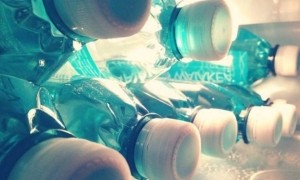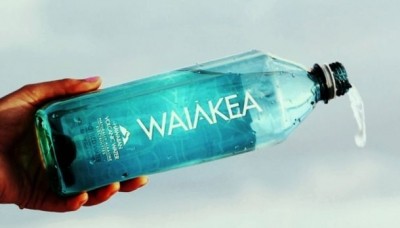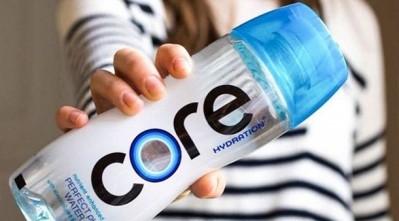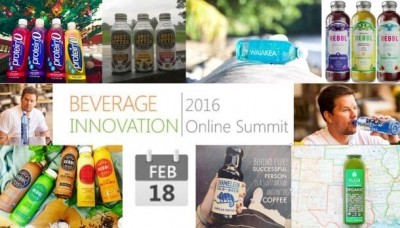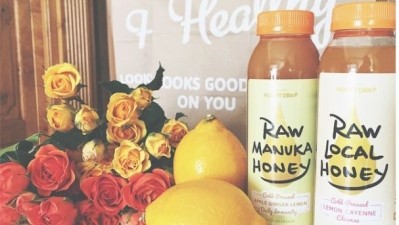Think you need $10m to start a bottled water company? Think again, says 20-something entrepreneur behind Waiakea Hawaiian 'volcanic' water
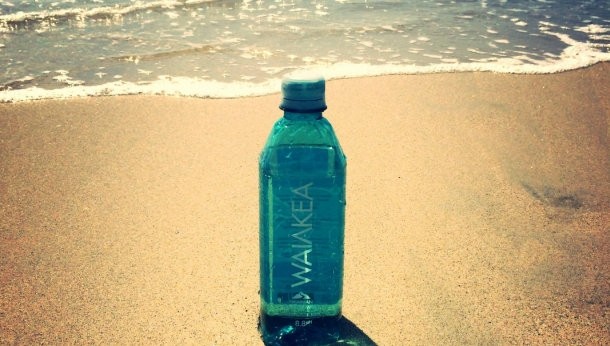
“Bottling water is capital intensive,” says Emmons, who first launched Waiākea - bottled water from the Kea’au aquifer at the base of the Mauna Loa volcano on Hawaii’s Big Island - in 2012 (a year after graduating) and now sells it in more than 900 stores in 14 states.
“But spending $10m or $15m on a bottling plant at the outset is ridiculous when you don’t have a validated product," he told FoodNavigator-USA. "You've got to put your product out there and determine whether there is a market for it before trying to raise a load of money.”
And so far, this strategy has paid off for Waiākea, which has a small facility at the source, but transports most of the water in bulk to the US where it is bottled at a co-packing facility. Now that the brand has proved itself on the market, however, he’s raising - and spending - more money: “We’re about to open a larger plant so we can be 100% bottled at source.”
We’re tapping one of the most sustainable sources of fresh water in the world with a daily recharge rate of 1.4bn gallons a day.
And while scale is important, you don’t have to be the size of Nestlé (Pure Life), PepsiCo (Aquafina) or Coca-Cola (Dasani) to succeed in the bottled water business, insists Emmons, who is based in LA, but saw a business opportunity in the middle of the Pacific Ocean after learning that his family had access to the Kea’au aquifer.
“If you don’t have a differentiated product, you’re just competing on price, and you see premium bottled water companies go out of business all the time. But there is a huge opportunity for a differentiated product that’s scalable.”
And Waiākea (which means 'broad waters' in Hawaiian) is doing something different, he insists: “One of the reasons why bottled water as a category is always under fire is because of what people see as the privatization of tap water - the fact that these big companies go in and pay pennies on the dollar for tap water, repackage it and sell it for a huge mark up.
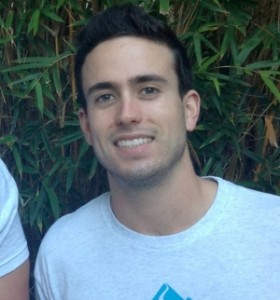
“Waiākea is tapping one of the most sustainable sources of fresh water in the world with a daily recharge rate of 1.4bn gallons a day.
"This means our source could provide enough water in a month to satisfy the amount of water that is consumed globally in a year, and we’re bottling less than .0001 of 1% of it. We’re using 100% RPET [recycled polyethylene terephthalate] bottles and we’re certified Carbon Neutral.”
Consumers want healthy, sustainable and ethical products
But isn’t shipping water from the middle of the Pacific to the United States a pretty crazy thing to do?
No, says Emmons, as first of all, if you have a sustainable source of water, it makes sense to tap it, and second, Waiākea is shipping it using empty space on cargo vessels that would otherwise be returning to the US empty.
"We use low emission carriers and back-hauling as much as possible, but we also actively participate in regional reforestation and other carbon offset projects to counter our shipping.
"We are always trying to do better though. I would also say it's not 'green' to ship coconut water across the pacific from Thailand, or other beverages or produce, and I believe it's important that consumers realize this.
"If you put us on the same level as other premium food & beverage products that are imported, I think you would be very intrigued by what our platform is attempting. If you look at the research, bottled water has the smallest carbon footprint of all packaged beverages.”
It's not 'green' to ship any coconut water across the pacific from Thailand
As for the taste and composition of the water itself, subtle distinctions between different products matter to many bottled water consumers, he says, even if not everyone is convinced that these differences are meaningful.
And Waiākea's water - which is filtered through thousands of feet of porous volcanic rock infusing it with sodium, calcium, potassium, silica and magnesium - is unusual in that it is naturally alkaline (around pH 8.8), and boasts a “soft and smooth taste with a hint of sweet” (for water aficionados out there), he says.
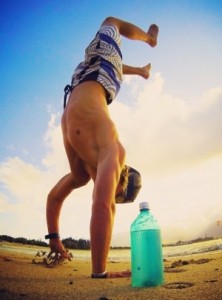
“Alkaline water is a growing trend, and ours is naturally alkaline. But we’re not out there making unsubstantiated health claims about it.”
Meanwhile, the charitable component to the business - for every liter of Waiākea sold, the company donates 650 liters of water to those in need in developing countries, through PumpAid - is also a key part of what the brand is about, he says.
“You can differentiate your brand based on the origin story (where the water comes from), the brand and the design, but that’s not enough. Consumers want more than that - they want products that are healthy, sustainable and ethical - and they are willing to pay for them.”
900 stores in 14 states
So how has he done so far?
The numbers speak for themselves, says Emmons, who only launched Waiākea in 2012 with co-founder Matt Meyer. “We’re in 900 stores in 14 states and we’ve been growing at more than 200% year-on-year.”
And while his customer base includes natural and organic chains such as Sprouts, Central Market and Bristol Farms, Waiākea is also sold in more mainstream chains such as Albertsons and ShopRite, plus a bunch of other channels including gyms, fitness clubs, yoga studios, restaurants, spas and hotels.
“Our strategy has always been multi-channel, in part because there are fewer barriers to entry in terms of slotting fees and discounts and so on in some of these channels outside of mainstream grocery.”
As for ramping up, it’s got to be done right, says Emmons, who has a very small team including supply chain director Abdullah Alkhudhairi, and director of sales Garrett McAllister.
“We don’t want to spread ourselves too thin. We want to keep our accounts lively because having great relationships with stores ensures you get that sell-though.”
The industry is a bit of an old boy’s club
So what’s it like running a business at 24? And haven’t there been moments when he’s fantasized about being able to clock off on a Friday night and let someone else worry about dealing with customers and paying the bills?
Yes, but only fleetingly, says Emmons, who started his first business at high school and secured early acceptance into the Lloyd Greif Entrepreneur Program as a sophomore at USC Marshall.
“What keeps me awake at night? Sometimes the complexity of our whole operation can be overwhelming and I’ve had my moments of self-doubt. There’s also a fear that you could make rash decisions for the sake of a quick deal. But I’d say I’ve got to the point now where I know my capabilities."
At the start, though, he says, you have to find people to help you.
"You've got to network your ass off. I'm very young, and it’s a relationship-based industry, a bit of an old boy’s club, so having people that can make introductions for you, open up new channels and establish your credibility is extremely important."
Click HERE to read more about Waiākea.
